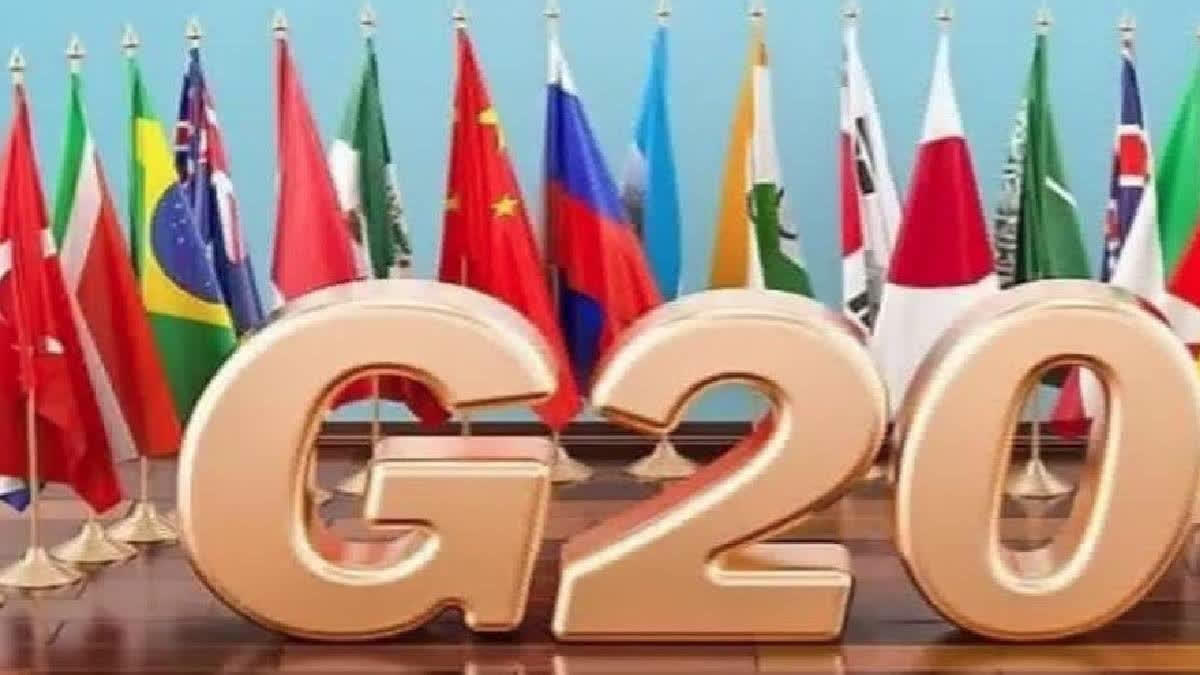Hyderabad: The 18th G-20 Summit concluded successfully in Delhi on 10th September with Prime Minister Narendra Modi handing the gavel over to the next president Louis Ignacio Lula Da Silva of Brazil.
The sword of failure loomed large over the organisation, whose presidency we took over from Indonesia in November last year. With the Russia-Ukraine conflict getting more intense by the day and both warring sides determined to secure the still elusive victory, the geo-strategic pundits speculated that the Summit would, if at all it happens, end without any final declaration, thus putting a blot on India’s presidency.
The indications towards this doubt began with the failure of the G-20 Foreign Ministers’ Conference to issue any joint declaration because of serious disagreement between the NATO countries and the Russia-China axis over the conflict. This was further strengthened by the absence of China, Saudi Arabia, Egypt and UAE from the G-20 Tourism meeting held in Srinagar early this year.
Moreover, despite the fact that the mandate and the aim of the grouping as mentioned in its founding documents was purely economic, the conflict found its express mention in the outcome document of every working group meeting held under the three verticals - be it on women empowerment, start-ups or even anti-corruption. It was really a herculean task for any president of G-20 to navigate through the troubled political waters infested with deep mutual distrust, the return of the Cold War, indiscreet exploitation of natural resources of African countries resulting in their economic disparity and the deepening North-South divide.
But India started its presidential tenure wisely by convening a virtual meeting of 125 developing and least developed countries under the title “Voice of the South”. This was the first-ever meeting of this kind where the concerns of these countries could find a platform. Articulating these concerns, India organised more than 230 meetings under the three verticals - Sherpa, Finance and NGOs- in more than 60 cities involving more than one lakh foreign delegates besides the Indian participants which included academicians, technocrats, business tycoons, officials from various fields, social activists, economists, think- tanks, NGOs etc.
However, till a week before the summit, the two warring blocs were still sticking to their respective stances which were fraught with the possibility of derailment of the whole summit. While the Western block was bent upon including a para condemning Russia for its ‘aggression’ on Ukraine in blatant violation of the UN charter and the provisions of international law as well, and wanted a mention of nuclear threat by Russia, the latter was not prepared to be branded as a culprit and, in turn, reportedly demanded inclusion of American nuclear action on Hiroshima and Nagasaki in 1945.
However, the intense and prolonged meeting held by the Indian negotiators with all parties for till 4.30 AM of 9th September bore fruit and finally the consensus Delhi Declaration arose along with the sun of 9th September. The credit for achieving this remarkable feat goes solely to Amitabh Kant, the Indian Sherpa and his team of four fabulous officers from the Indian Foreign Service as well as the relentless work done by the Ministry of External Affairs under the able guidance of the Minister, Dr. S. Jaishankar.
That things were going to be smoother was indicated by the fact that Joe Biden, throwing all the state protocol out of the window, rushed from the airport directly to the PM’s residence. In the final document unanimously adopted by the Summit, neither the words “Russia” nor “aggression” were mentioned. While this can be seen as a climbdown by NATO, the document also gave some solace to the West also by calling it a war (as against a "conflict” used by India) and calling upon the nations to respect the sovereignty and integrity of other nations in in accordance with the UN Charter thus making a veiled reference to Russia.
The document was, contrary to expectations, conspicuous by the absence of any mention of the Indo-Pacific problem which was perhaps a bargaining concession for China in place of its insistence on its bilateral issues with the West. The document was to the satisfaction of both sides which they saw from their own perspectives. Terming the event a “breakthrough Summit”, Russian Foreign Minister Sergei Lavrov thanked India for “creating the foundation for democratisation of global institutions” and hailed the Final Document as a victory for Russia.
